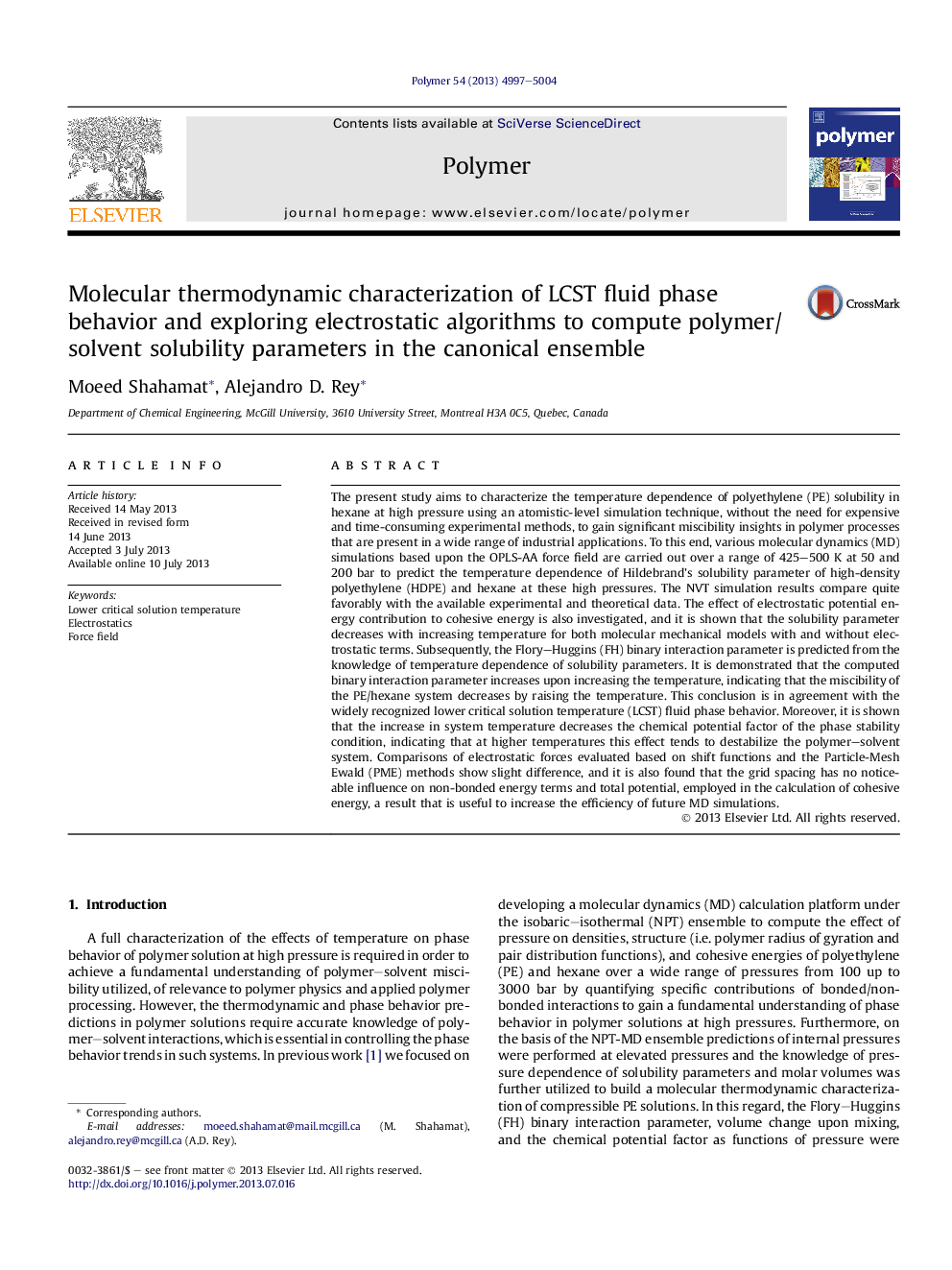| کد مقاله | کد نشریه | سال انتشار | مقاله انگلیسی | نسخه تمام متن |
|---|---|---|---|---|
| 5181535 | 1380965 | 2013 | 8 صفحه PDF | دانلود رایگان |

The present study aims to characterize the temperature dependence of polyethylene (PE) solubility in hexane at high pressure using an atomistic-level simulation technique, without the need for expensive and time-consuming experimental methods, to gain significant miscibility insights in polymer processes that are present in a wide range of industrial applications. To this end, various molecular dynamics (MD) simulations based upon the OPLS-AA force field are carried out over a range of 425-500Â K at 50 and 200Â bar to predict the temperature dependence of Hildebrand's solubility parameter of high-density polyethylene (HDPE) and hexane at these high pressures. The NVT simulation results compare quite favorably with the available experimental and theoretical data. The effect of electrostatic potential energy contribution to cohesive energy is also investigated, and it is shown that the solubility parameter decreases with increasing temperature for both molecular mechanical models with and without electrostatic terms. Subsequently, the Flory-Huggins (FH) binary interaction parameter is predicted from the knowledge of temperature dependence of solubility parameters. It is demonstrated that the computed binary interaction parameter increases upon increasing the temperature, indicating that the miscibility of the PE/hexane system decreases by raising the temperature. This conclusion is in agreement with the widely recognized lower critical solution temperature (LCST) fluid phase behavior. Moreover, it is shown that the increase in system temperature decreases the chemical potential factor of the phase stability condition, indicating that at higher temperatures this effect tends to destabilize the polymer-solvent system. Comparisons of electrostatic forces evaluated based on shift functions and the Particle-Mesh Ewald (PME) methods show slight difference, and it is also found that the grid spacing has no noticeable influence on non-bonded energy terms and total potential, employed in the calculation of cohesive energy, a result that is useful to increase the efficiency of future MD simulations.
Journal: Polymer - Volume 54, Issue 18, 16 August 2013, Pages 4997-5004